Off the cuff is a new feature at The Immanent Frame, in which we pose a question to a handful of leading thinkers and ask for a brief response. Our question this week is about summer reading.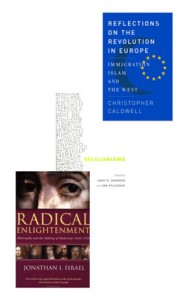
With the dog-days of August already at hand and the fall semester just around the corner, we’ve been curious about what our contributors have read these past few months. So we asked: What are the best books and essays you’ve come across this summer? What are you most looking forward to reading in the near future?
Responses will be posted throughout the week.
Colin Jager, Associate Professor of English, Rutgers University
Simon During, Professor of English, Johns Hopkins University
John R. Bowen, Dunbar-Van Cleve Professor in Arts & Sciences, Sociocultural Anthropology, Washington University in Saint Louis
Kathryn Lofton, Assistant Professor of American Studies and Religious Studies, Yale University
Winnifred Fallers Sullivan, Associate Professor of Law and Director of the Law and Religion Program, SUNY-Buffalo
______
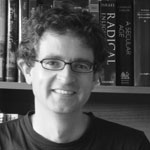 Colin Jager, Associate Professor of English, Rutgers University
Colin Jager, Associate Professor of English, Rutgers University
I’ve been thinking about the relationship between enchantment and realism,which has driven me back to two classics from the 1980s: George Levine’s The Realistic Imagination and Frederic Jameson’s The Political Unconscious. I also read Levine’s Darwin Loves You this summer. I continue to think about Jonathan Israel’s Radical Enlightenment and the ramifications of his argument that the mainstream Enlightenment was continually prodded by Spinozism. I hope to read more Spinoza soon, and try to figure out why he appeals so strongly today. And I want to read the new Terry Eagleton book, and a book on Hamann by John Betz called After Enlightenment.
______
 Simon During, Professor of English, Johns Hopkins University
Simon During, Professor of English, Johns Hopkins University
The new technologies, which have severed the connection between the book and the text, have changed my reading life. I say that as a confirmed, indeed obsessional, book collector. So, on the Eucalyptus app on my iPhone (the best app I know for iPhone reading), and in five minute snatches (waiting for the shuttle bus, sitting in my 3yr old’s darkened room helping her to go to sleep….) I’ve been reading through Macaulay’s History of England, one of the great 19th century texts, about which everything we think we know seems to be beside the point. I tend to use my Kindle outside the US (except to read the Times and the Nation) and especially where battery recharging might be difficult. So, a few days ago, holed up at LAX for a 12 hour wait between flights on an Australian trip, I downloaded Zoe Heller’s The Believers, Nick Laird’s Glover’s Mistake and Colin Toibin’s Brooklyn so as to keep up to speed with contemporary British literary fiction. The 12 hours flew away. But I don’t regret that I don’t own these works in more durable form. As to actual material books: this summer has been largely dedicated to rereading Maurice Blanchot (the reason why is complex) with the wonderful John Wood translation of The Magic Mountain as light relief. And then poetry, a genre I need to read in print, on paper. This summer’s finds include my colleague (and immanent frame blogger) Chris Nealon’s wonderful latest collection, Plummet, and John Fuller’s Selected Poems (Fuller is an Auden disciple, a civic poet who uses language very thickly, smearing words into shape.) What’s next? I’m eying Alan Myers’s translation of Dostoevesky’s The Idiot, or maybe Alisdair Gray’s 1982, Janine for non-academic novel reading. And Elizabeth Jenning’s Collected Poems for my verse fix.
______
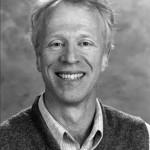 John R. Bowen, Dunbar-Van Cleve Professor in Arts & Sciences, Washington University in Saint Louis
John R. Bowen, Dunbar-Van Cleve Professor in Arts & Sciences, Washington University in Saint Louis
Let me pervert the question and say that the most important book I am reading on the topic is Christopher Caldwell’s Reflections on the Revolution in Europe, important for its role in public life. It is the most persuasive and thus most unsettling of the recent books in the (unfortunately) growing genre of “Europe’s already caved in to fast-breeding, intolerant Muslims, and we are next!” books, featured at your local Barnes & Noble. The book masterfully distorts demography, intentions, worship, and scriptural interpretations, postulating, along the lines of an older style of American Islamologist, that one can best decipher what a Muslim has in mind by looking to the Qur’an. The argument that Muslims all do have the same thing in mind (try to take over the world), specious though it might be, is all too appealing to many frightened readers. We can, however, respond with facts and common sense.
______
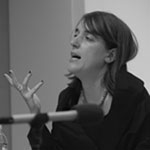 Kathryn Lofton, Assistant Professor of American Studies and Religious Studies, Yale University
Kathryn Lofton, Assistant Professor of American Studies and Religious Studies, Yale University
Among the few new(ish) works I was able to read, I enjoyed digging into two edited collections: Secularisms (edited by Janet R. Jakobsen and Ann Pellegrini) and Religion and Its Other (edited by Heike Bock, Jörg Feuchter and Michi Knecht). Secularisms maps the field of secular studies with an elegance and thematic consistency unusual for edited collections. Despite its topical pluralism, there are threading commitments to explorations of the feminist, nationalist, and historical consequences of secular diagnoses. Depending on my mood, any number of the essays are my favorites, but in today’s recollection Laura Levitt’s stands out as a response to an important categorical problem as well as just reading beautifully (a welcome uniformity among the essays). Religion and Its Other offers several essays on early modern materials, and Kristine Krause’s piece on healing rituals in contemporary Ghanaian hospitals would be a great addition to courses on secularism, science, or ritual studies. Some of the most exciting materials I read this summer, though, are forthcoming, and represent the wide swath of methodological engagement with religion and the secular: John Lardas Modern, a contributor to this blog and a leading young scholar of American religion, is currently finishing Haunted Modernity; or, the Metaphysics of Secularism in Antebellum America, which will be forthcoming from Chicago in 2010; my new colleague, Ludger Viefhues-Bailey, is working on a remarkable rumination called No Separation: How Religion Makes the Secular State, which builds upon lines of inquiry he began in his earlier monographs on Stanley Cavell and Focus on the Family; and Elizabeth Clark, whose contributions to the studies of Late Antique religion, gender studies, and critical historiography have defined those fields, is completing a manuscript, Founding the Fathers: Early Church History and Protestant Professors in Nineteenth-Century America that offers a comprehensive rendering of the emergence of a ‘secular’ religious studies from seminarian pursuits of primitive Christianities.
______
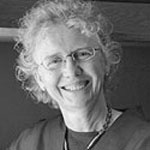 Winnifred Fallers Sullivan, Associate Professor of Law and Director of the Law and Religion Program, SUNY-Buffalo
Winnifred Fallers Sullivan, Associate Professor of Law and Director of the Law and Religion Program, SUNY-Buffalo
While on holiday in Turkey this summer (in Istanbul and Cappadocia), I read three novels set in modern Turkey. I recommend them all. Reading fiction is, for me, a perfect antidote to the seductive narratives of secularization. As is being in Turkey. Cheap stories of modernity seem somehow ridiculous when considered in the context of good fiction and the complex realities of contemporary Turkey. First, Rose Macaulay’s The Towers of Trebizond, a 1956 novel recently reprinted by The New York Review of Books. The narrator is a young woman artist who tags along on an ill-conceived trip organized by her eccentric aunt and a rather repellent high Anglican priest to convert the Turks. It is a very funny, very English, and very beautiful, novel of theological manners. If you have any tolerance for mid-twentieth century English satire, you will laugh out loud while being astonished by the theological sophistication and seriousness of this wonderful novel. Second, I read The New Life by Orhan Pamuk (1995). I have read and very much liked his others. Another first person narrative of self-discovery, The New Life is both spooky and absorbing, a mysterious and cautionary tale about the supposed power and authority of books. Finally, I read Mehmet My Hawk by Yasar Kemal (1955), a swashbuckling and often blood-curdling story of life and death centering on a Robin Hood like brigand in southeastern Turkey.












